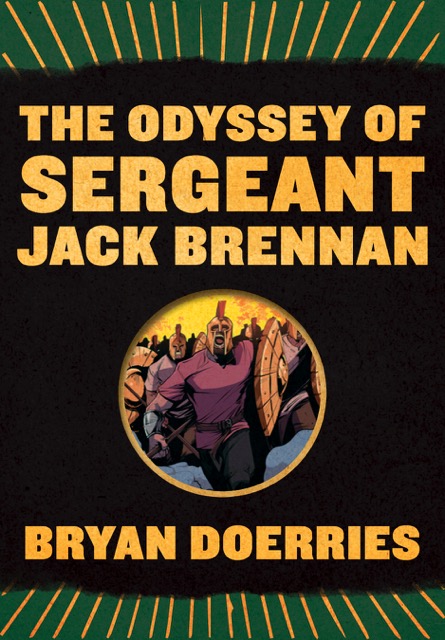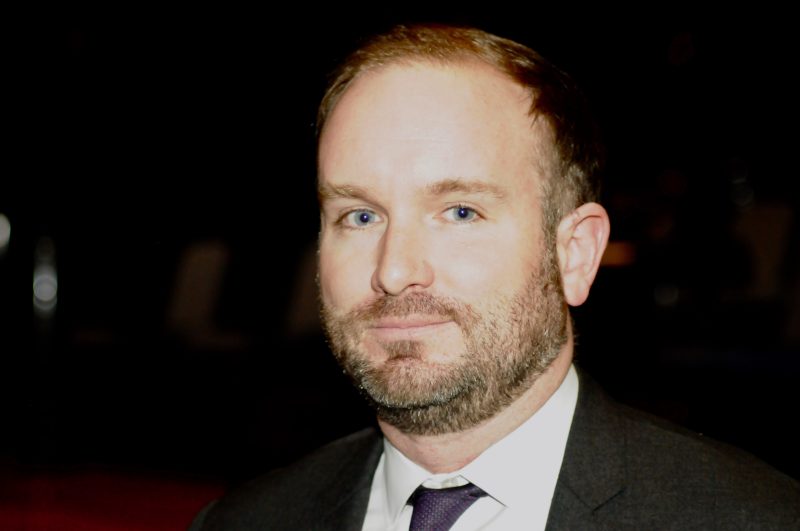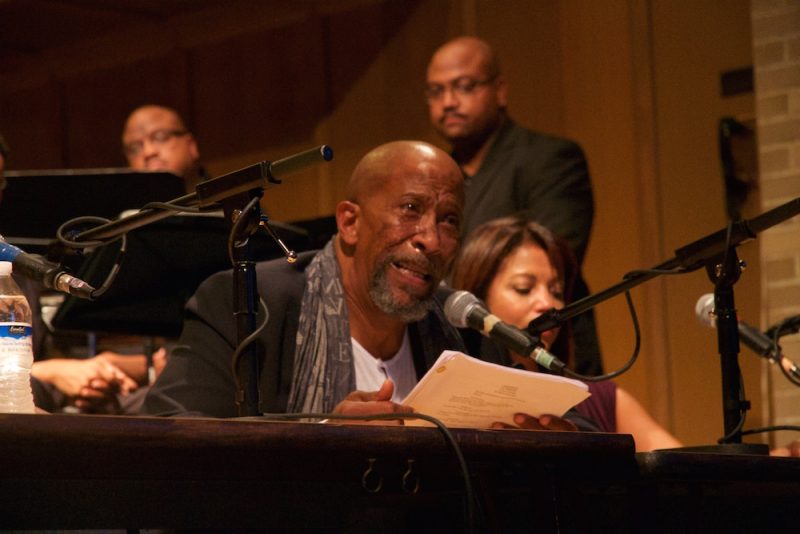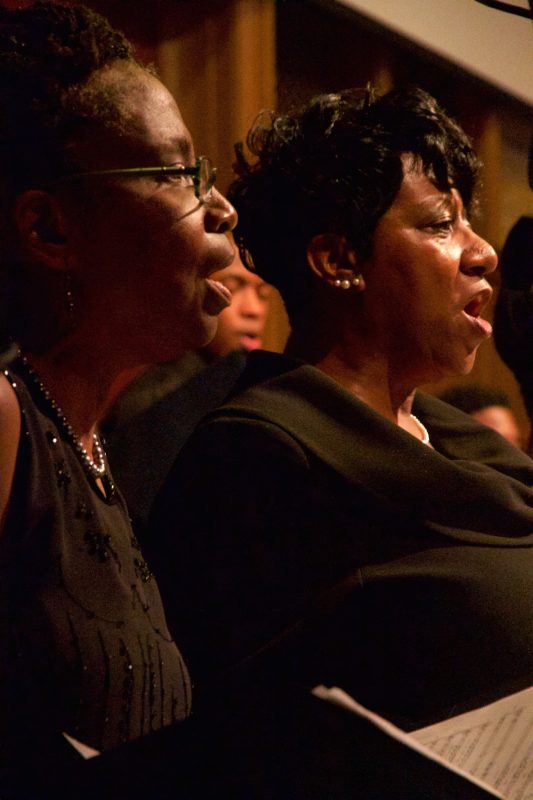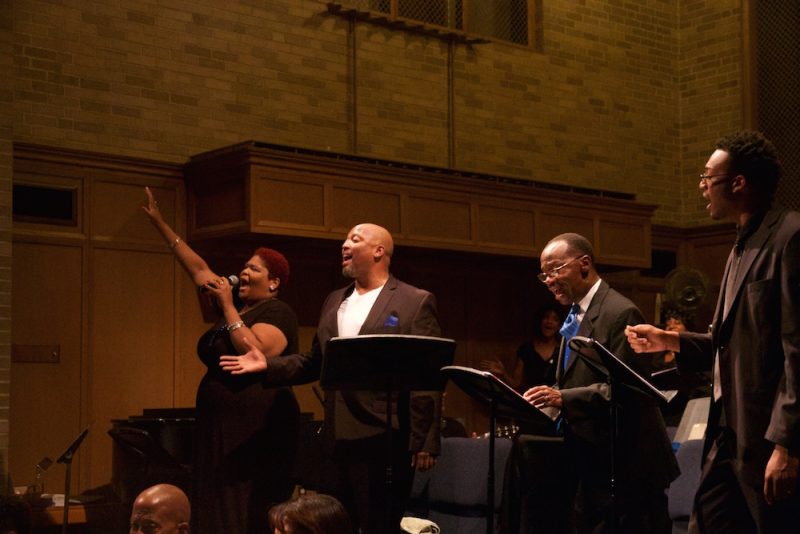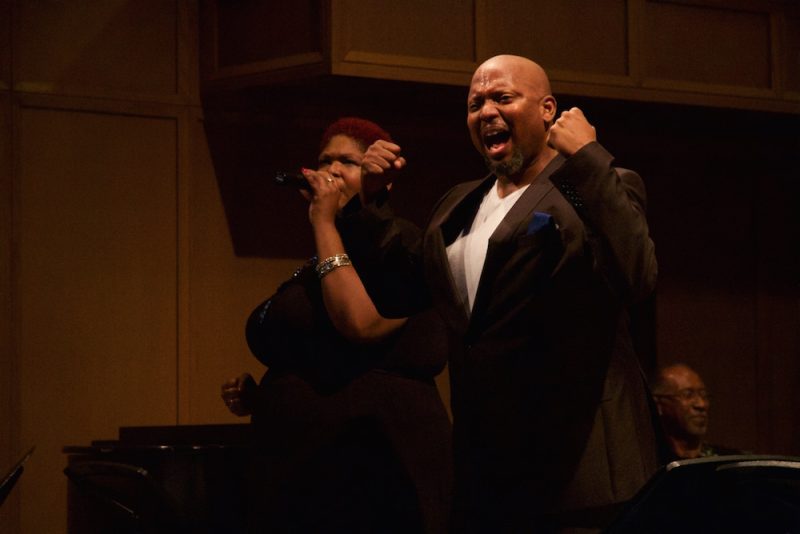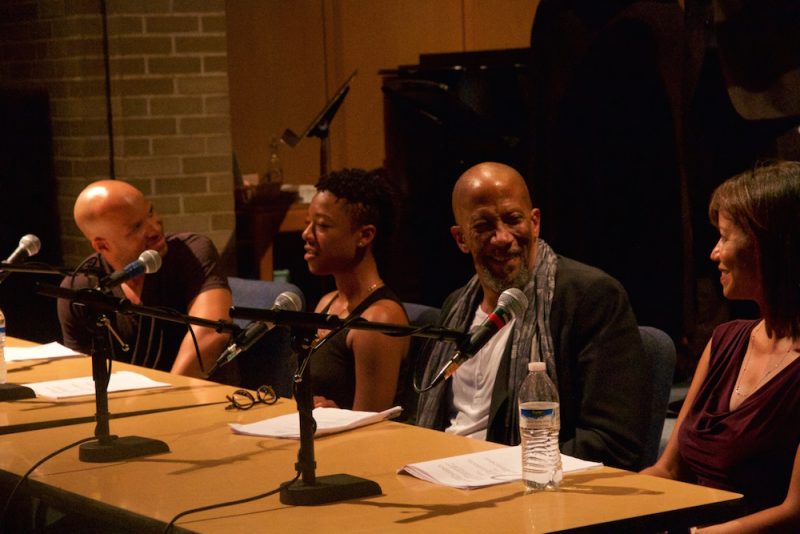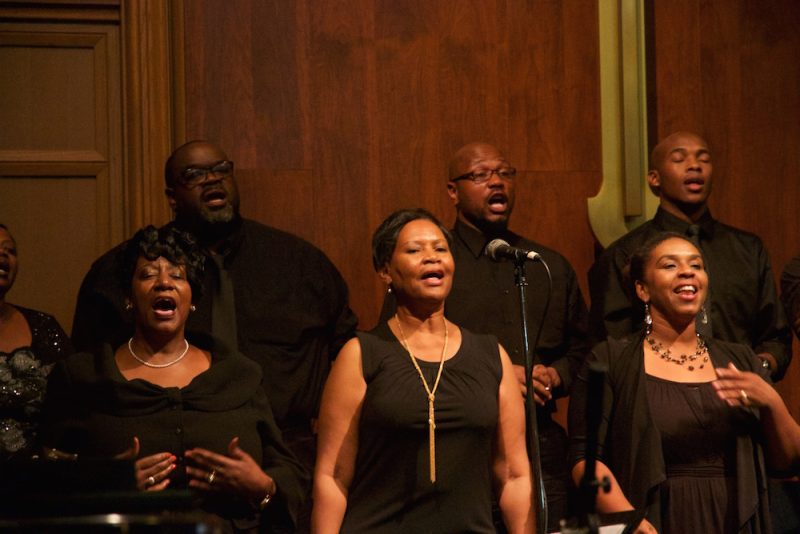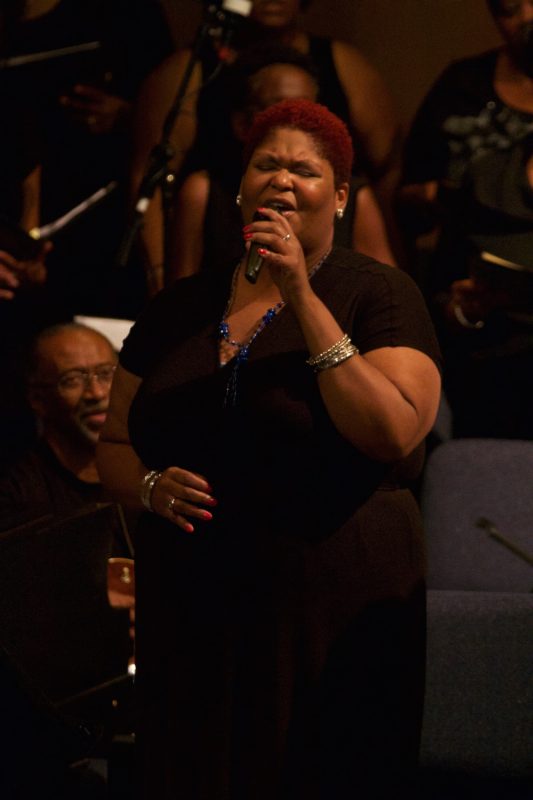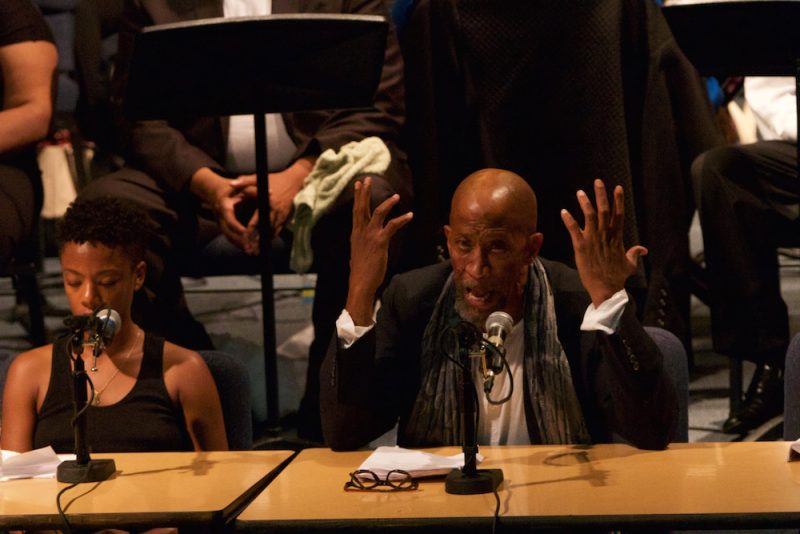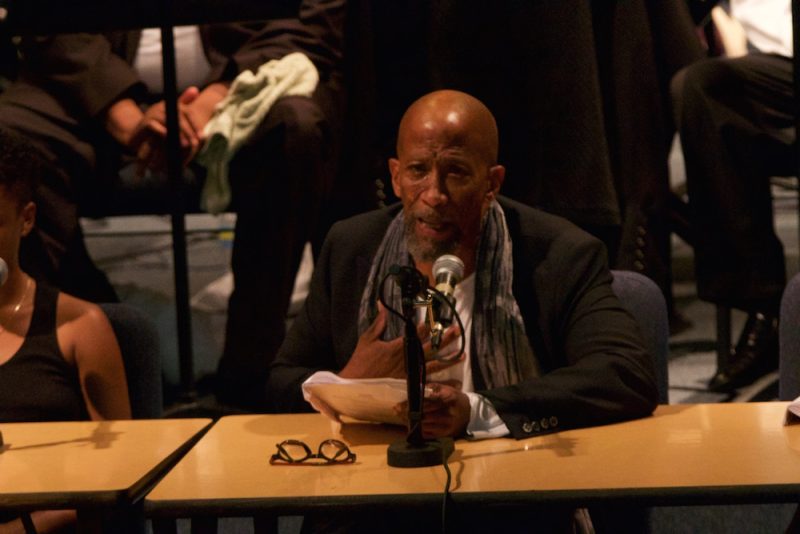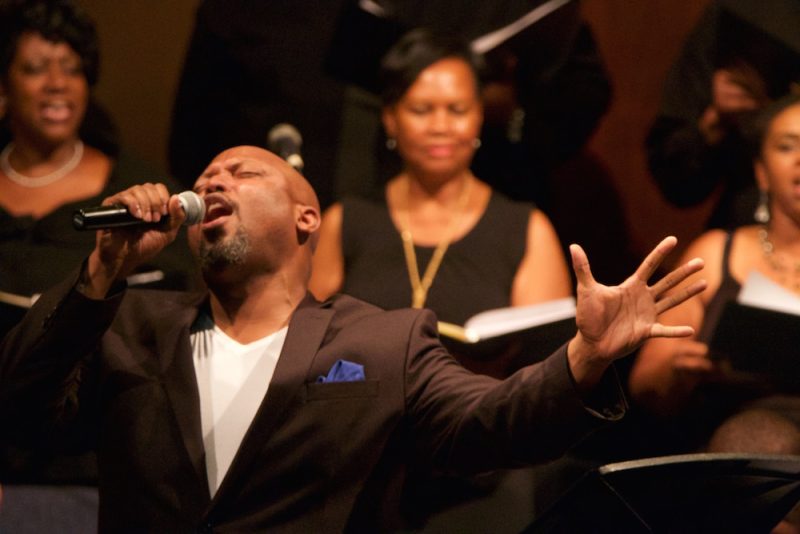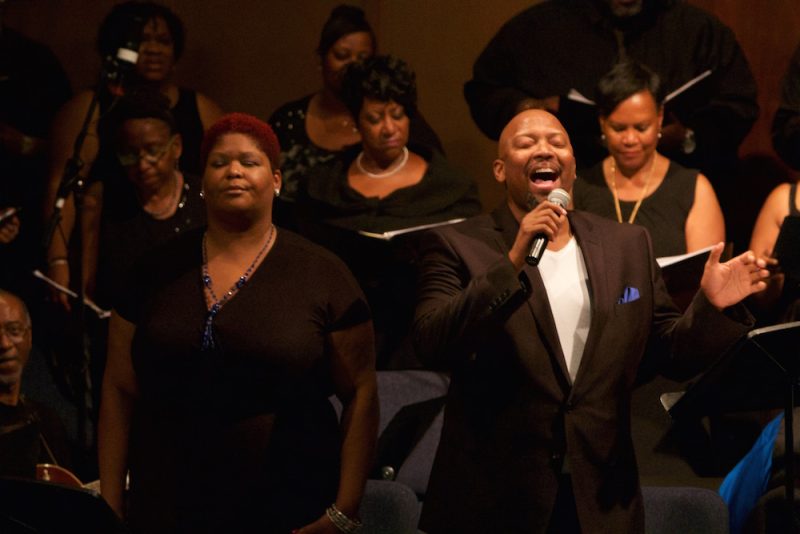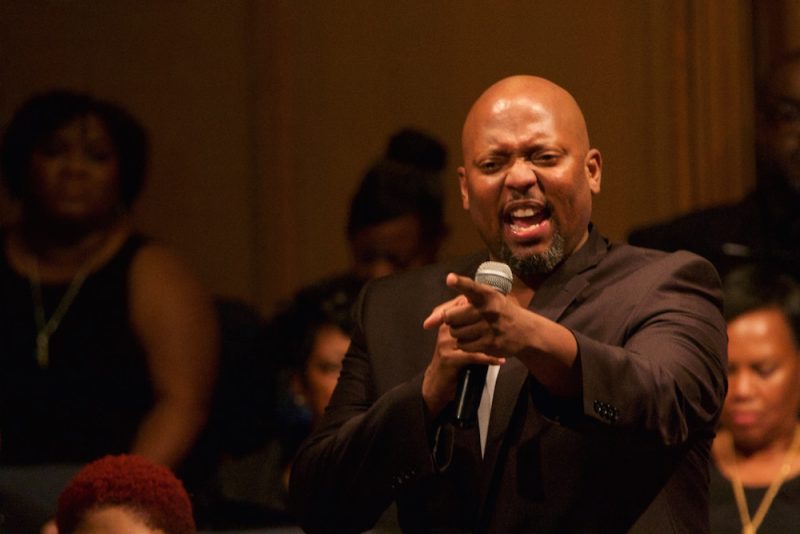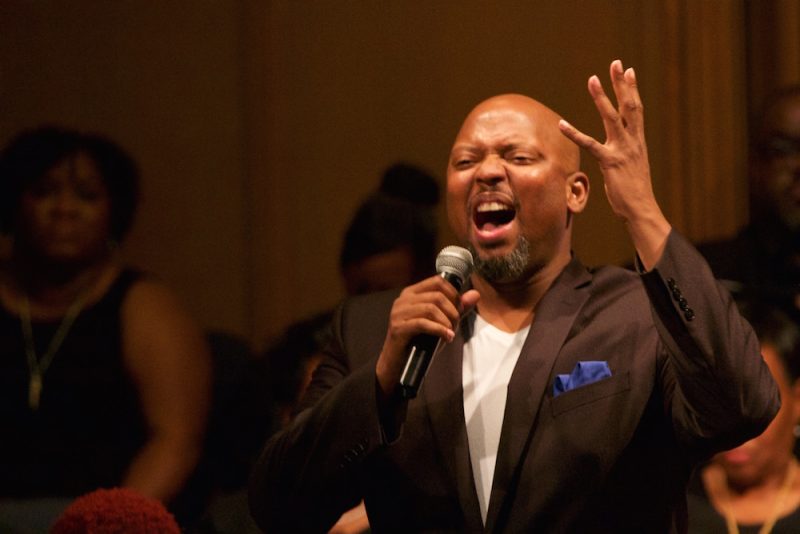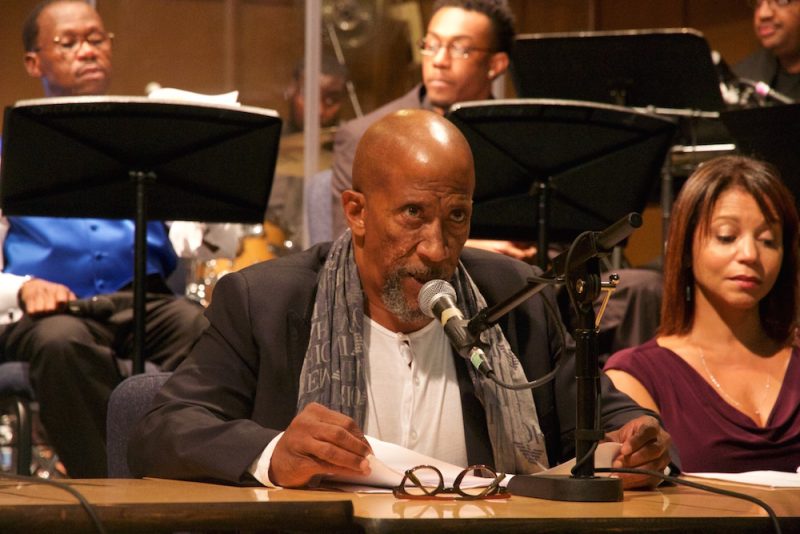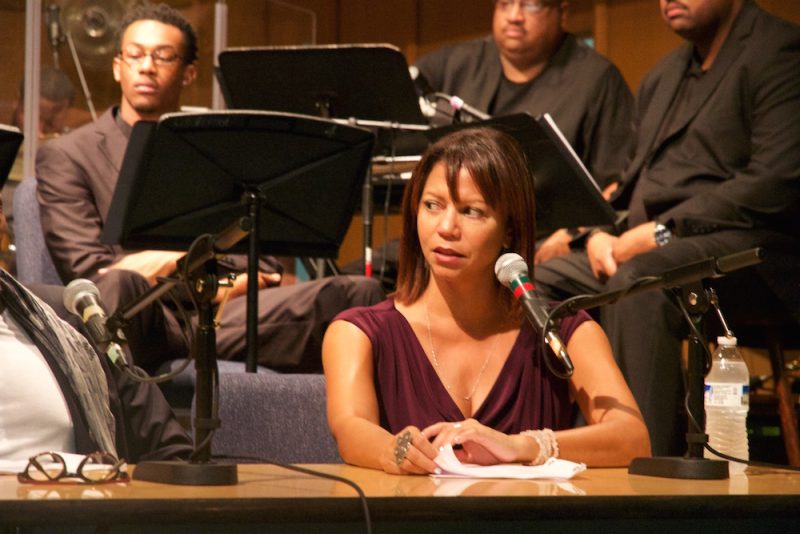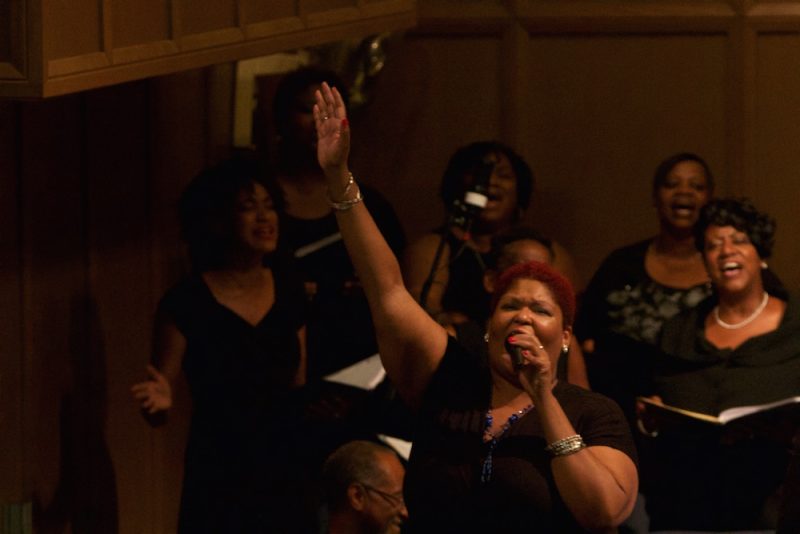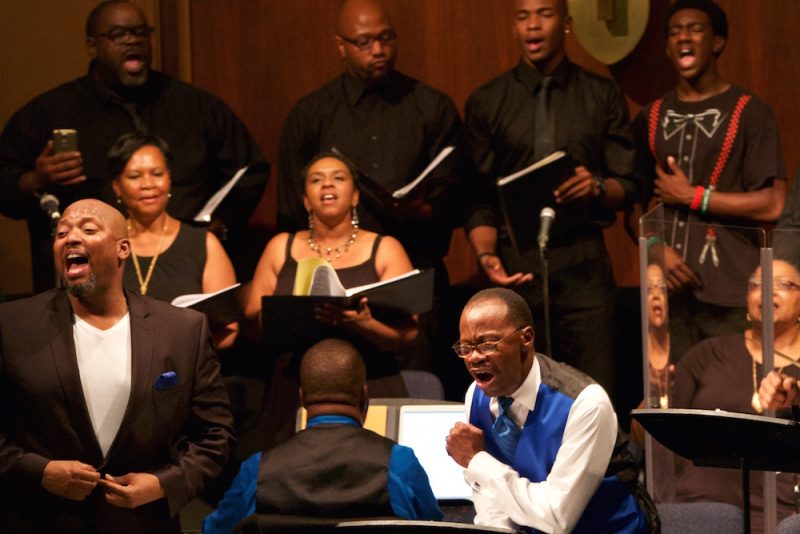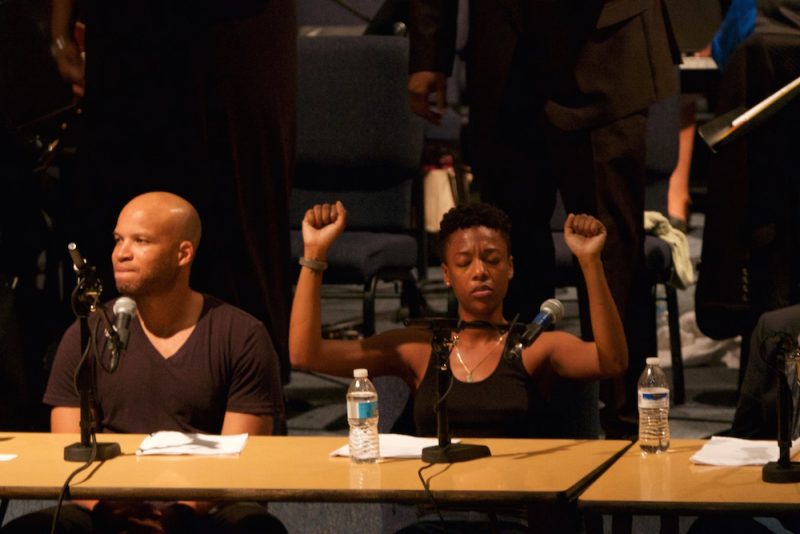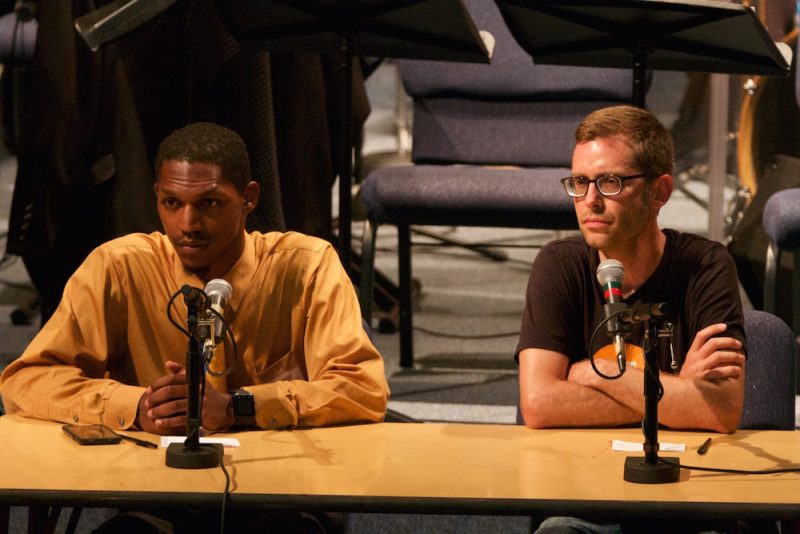
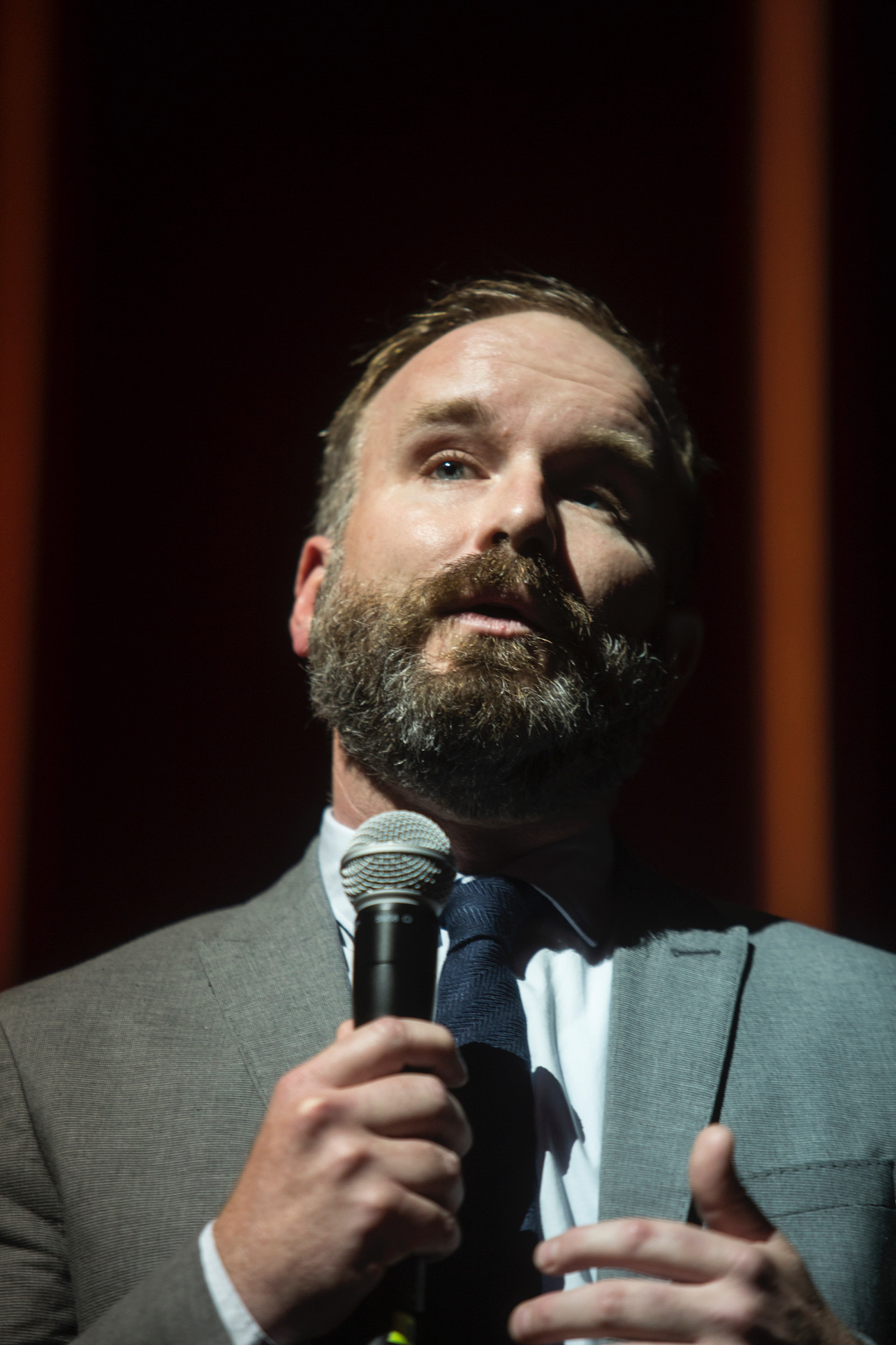
Bryan Doerries
Writer, Director, Translator
Founder of Theater of War
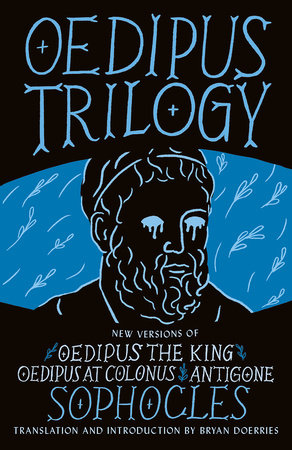
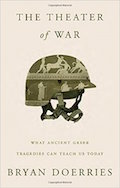
Readings &
Lecture Topics
- Theater of War: What Ancient Greek Tragedies Can Teach Us Today
- Prometheus in Prison
- The Dionysus Project
- Domestic Violence Project
- Facing the End of Life
- Antigone in Ferguson
- Hercules in Brooklyn
- The Audience as Translator
Biography
“Bryan Doerries is activating an old alchemy for our young century. Ancient stories, and texts that have stood the test of time, can be portals to honest and dignified grappling with present wounds and longings, and callings that we aren’t able to muster in our official places now.” –Krista Tippett
Brooklyn-based writer, director, translator, and lecturer, Bryan Doerries currently serves as Artistic Director of Theater of War Productions, a social impact company that uses theater to address pressing social and public health issues. A self-described evangelist for ancient stories and their relevance to our lives today, Doerries uses age-old approaches to help individuals and communities heal from trauma and loss. Through performances featuring prominent film and stage actors in staged readings of plays from Antigone to Long Days Journey Into Night—each production followed by provocative and intimate town hall-style audience discussion—he addresses head on issues such as combat-related psychological injury, end-of-life care, racialized violence, incarceration, gun violence, domestic violence, sexual assault, the climate crisis, and addiction. He shows us how suffering and healing are part of a timeless process in which dialogue and empathy are inextricably linked. “Our objective is to bridge the divide,” Doerries says, “to raise consciousness, and move us to positive action.”
To highlight just one of many performances: Theater of War Productions’ signature project called Theater of War features readings from Sophocles’ Ajax and Philoctetes, reclaiming the power of the ancient Greek texts for military and civilian communities—service members, veterans, caregivers, and families—to initiate conversations about the visible and invisible wounds of war. The plays convey the story of the warrior, but also read like textbook descriptions of wounded warriors, struggling under the weight of psychological and physical injuries to maintain their dignity, identity, and honor—in other words, they speak directly to the men and women who today live lives of mythological proportions. Hailed by the Department of Defense as a “revolutionary public health campaign,” Doerries has presented over 350 performances of Theater of War (readings from Sophocles’ Ajax and Philoctetes) for military and civilian audiences throughout the United States, Europe, and Japan, performing at military sites as diverse as the Pentagon, Guantanamo Bay, Walter Reed Army Medical Center, homeless shelters, high school auditoriums, theaters, and churches.
Synopses of many additional projects, all of which are currently touring, are included below.
Doerries’ books include The Theater of War: What Ancient Greek Tragedies Can Teach Us Today, a collection of his translations of ancient Greek Tragedies entitled All That You’ve Seen Here is God, and a graphic novel The Odyssey of Sergeant Jack Brennan, an adaptation of Homer’s Odyssey as told by an infantry Marine to his squad. His translations of Sophocles’ Oedipus Trilogy were published in Fall 2021 through Penguin Random House with an emphasis on the contemporary relevance of these classic Greek tragedies. Gary Trudeau wrote, “Bryan Doerries’s passionate search for meaning in ancient texts has led him out of the dusty stacks of scholarship into an arena of ecstatic public engagement. He has created a theatrical experience that has lifted countless audiences out of isolation and into profound community.”
Among his awards, he has received an honorary Doctorate of Humane Letters from Kenyon College, and in March 2017, he was named Public Artist in Residence (PAIR) for the City of New York, a joint appointment with the New York City Department of Veterans’ Services and Department of Cultural Affairs.
Bryan lectures on his work at cultural venues throughout the world and, in recent years, has taught courses at Princeton University, the Stella Adler School of Acting, and the Bard Prison Initiative. He is a proud board member of the Alliance for Young Artists & Writers, Arts in the Armed Forces, and Friends of the Young Writers Workshop.
A SAMPLE OF THE ACTIVE PROJECTS & PRODUCTIONS
Acclaimed Actors Who Participate in Dramatic Readings
More than 150 acclaimed actors have participated in these projects, including: Jake Gyllenhaal, Frances McDormand, Alfred Molina, John Turturro, Martin Sheen, Blythe Danner, Jesse Eisenberg, Kathryn Erbe, Paul Giamatti, Charles S. Dutton, Terrence Howard, David Strathairn, Amy Ryan, Debra Winger, Dianne Wiest, and Jeffrey Wright.
Theater of War
Hailed by the Department of Defense as a “revolutionary public health campaign,” Theater of War is a groundbreaking project that presents readings of ancient Greek War plays—Sophocles’ Ajax and Philoctetes—in military and civilian communities as a catalyst for powerful, facilitated discussions about the visible and invisible wounds of war. To date, Theater of War has been performed for more than 75,000 service members, concerned citizens, veterans, and their families all over the world.
Antigone in Ferguson
Antigone in Ferguson presents dramatic readings by acclaimed actors of scenes from Sophocles’ Antigone—an ancient Greek tragedy about what happens when personal conviction and state law clash, and violence ensues—for a large, diverse audiences composed of concerned citizens, members of faith communities, and members of the law enforcement community, with the goal of generating powerful dialogue between these communities, fostering compassion, understanding, and positive action.
Hercules in Brooklyn
Hercules in Brooklyn presents dramatic readings of scenes from Euripides’ Madness of Hercules—an ancient Greek tragedy about an unthinkable act of violence commitment by an angry man with an invincible weapon— for audiences composed of concerned citizens, members of the law enforcement community, victims and perpetrators of gun violence, and the general public, in order to generate powerful dialogue between these communities, fostering awareness and understanding of the lasting impact of gun violence upon individuals, families, and communities.
Prometheus in Prison
Prometheus in Prison presents readings of Aeschylus’ Prometheus Bound for corrections professionals as a catalyst for guided discussions about the challenges of supervising and rehabilitating prisoners in both correctional facilities and in communities. The project has been performed in maximum security prisons in the US and UK and in the detention camps of Guantanamo Bay, Cuba.
Medea & Phaedra: Tragedies of Passion, Betrayal, and Revenge
Doerries leads an evening of performance and dialogue examining Euripides’ Medea and Seneca’s Phaedra, two ancient plays that timelessly depict ho scorned passion can lead to revenge and, sometimes, unthinkable violence. Is Media mentally is, and, if so, how do we understand the chilling logic of her decision to kill her own children? What drives Phaedra to deceive her husband and attempt to seduce her stepson? In a world in which children are often the unwitting victims of dissolving marriage and predatory individual, how do we advocate for and protect the innocent?
The Dionysus Project
The Dionysus Project is an innovative public health project that presents readings of scenes from Euripides’ Bacchae, an ancient Greek play about the destructive power of intoxication, as a catalyst for town hall discussions about the impact of substance abuse and addiction upon individuals, families, and communities. The project engage audiences in crucial discussions about the timelessness of the human struggle with substance abuse and addiction, as well as resources and solutions that communities can utilize today. A related project presents readings of Conor McPherson’s one man play Rum and Vodka on military installations as a catalyst for town hall discussions about alcoholism, substance abuse, and addiction.
Addiction Performance Project
Originally developed with the support of the National Institute on Drug Abuse, the Addiction Performance Project presents dramatic readings of Long Day’s Journey into Night, Act III in medical settings and in communities that have been devastated by substance abuse and addiction, as a catalyst for open discussions about impact of addiction upon individuals, families, and communities.
Domestic Violence Project
The Domestic Violence Project is a public health project that presents dramatic readings of scenes from Tennessee Williams’ A Streetcar Named Desire as a catalyst for town-hall discussions about the impact of domestic violence on individuals, couples, children, caregivers, and communities. The goal of the project is to create a safe space for dialogue about abusive and manipulative behaviors, power struggles and violence, the lasting impact of experiencing or witnessing violence in one’s home, and the role of support systems in these circumstances. These performances, and the dynamic, interactive discussions that follow, are designed to evoke empathy, break down stigmas, and greatly reduce tolerance for manipulative behaviors and domestic violence.
End of Life
End of Life presents dramatic readings of Sophocles’ Women of Trachis, about the death of the Greek hero Hercules, as a catalyst for town hall discussions about the challenges faced by medical professionals and caregivers who work in the fields of palliative care, hospice, geriatrics, and nursing. The selected scenes from the two plays present emotionally charged, ethically complex situations involving suffering patients and conflicted caregivers, providing an ancient perspective on contemporary medical issues.
Book of Job
The Book of Job Project presents dramatic readings from The Book of Job, an ancient Hebrew poem about how humans behave when bad things happen to good people, as a catalyst for audience discussions about the lasting impact of natural and manmade disasters upon individuals, families, and communities.
Short Bio
Bryan Doerries is a New York-based writer, director, and translator who currently serves as Artistic Director of Theater of War Productions, a company that presents dramatic readings of seminal plays and texts to frame community conversations about pressing issues of public health and social justice. A self-described evangelist for ancient stories and their relevance to our lives today, Doerries uses age-old approaches to help individuals and communities heal from trauma and loss. Doerries’ books include The Theater of War: What Ancient Greek Tragedies Can Teach Us Today, The Odyssey of Sergeant Jack Brennan, All That You’ve Seen Here is God, and Oedipus Trilogy. Among his awards, he has received an honorary Doctorate of Humane Letters from Kenyon College, and in March 2017, he was named Public Artist in Residence for the City of New York. For more information about his work, please visit: www.theaterofwar.com.
Videos
Publications
Oedipus Trilogy
Fall, 2021
New Versions of Sophocles’ Oedipus the King, Oedipus at Colonus, and Antigone
Here are Oedipus the King, Oedipus at Colonus, and Antigone, in fresh new versions for contemporary readers and audiences. Each has been the basis for groundbreaking theatrical performances by Theater of War Productions, in which actors present dramatic readings, followed by town hall-style discussions designed to confront social issues by drawing out raw and personal reactions to themes highlighted in the plays. The Oedipus Project is an innovative digital initiative that presents scenes from Oedipus the King as a catalyst for frank and restorative online conversations about the impact of the COVID-19 pandemic upon diverse communities. First performed in 429 BC during the time of a plague that killed one-third of the Athenian population, it is a story of arrogant leadership, ignored prophecy, and a pestilence that ravages the city of Thebes–a story that is as relevant now as it was in its own time. Oedipus at Colonus will be the basis for a forthcoming Theater of War project to engage with the efforts, ordeals, and sacrifices of frontline medical providers. Antigone in Ferguson is a pioneering project that fuses dramatic readings from Antigone with live choral music, culminating in powerful, healing discussions about race and social justice. Antigone in Ferguson was conceived in the wake of Michael Brown’s death in 2014, through a collaboration between Theater of War Productions and community members from Ferguson, Missouri, and premiered at Normandy High School, Michael Brown’s alma mater.
The Theater of War: What Ancient Greek Tragedies Can Teach Us Today
2015
“Bryan Doerries’s The Theater of War is a testament both to the enduring power of the classics and to the vital role art can play in our communal understanding of war and suffering.” —Phil Klay
This is the personal and deeply passionate story of a life devoted to reclaiming the timeless power of an ancient artistic tradition to comfort the afflicted. For years, theater director Bryan Doerries has led an innovative public health project that produces ancient tragedies for current and returned soldiers, addicts, tornado and hurricane survivors, and a wide range of other at-risk people in society. Drawing on these extraordinary firsthand experiences, Doerries clearly and powerfully illustrates the redemptive and therapeutic potential of this classical, timeless art: how, for example, Ajaxcan help soldiers and their loved ones better understand and grapple with PTSD, or how Prometheus Bound provides new insights into the modern penal system. These plays are revivified not just in how Doerries applies them to communal problems of today, but in the way he translates them himself from the ancient Greek, deftly and expertly rendering enduring truths in contemporary and striking English. The originality and generosity of Doerries’s work is startling, and The Theater of War—wholly unsentimental, but intensely felt and emotionally engaging—is a humane, knowledgeable, and accessible book that will both inspire and enlighten. Tracing a path that links the personal to the artistic to the social and back again, Doerries shows us how suffering and healing are part of a timeless process in which dialogue and empathy are inextricably linked.
The Odyssey of Sergeant Jack Brennan
Graphic Novel, 2016
Jack Brennan is a Marine Corps sergeant whose infantry squad has been cleared to return home from a grueling deployment to Afghanistan. A few years prior, Sergeant Brennan lost one of his closest friends—a young combat veteran—to suicide and has vowed to do everything in his power to keep his Marines from a similar fate. On their last night in-country, Brennan, who has long kept a tattered copy of the Odyssey with him on deployment, shares his version of Homer’s classic with his fellow soldiers to help prepare them for the transition back home. Brennan plunges into a rich retelling of Odysseus’s long journey home from the battlefield at Troy, during which Odysseus and his men confront numerous obstacles—from the lure of a psychedelic lotus plant to ghoulish shades in the Land of the Dead to the seductive songs of the deadly Sirens—as they try to make it back to Greece. Along the way, Brennan and his fellow Marines map the struggles faced by Odysseus and his men onto their own—isolation, addiction, guilt, depression, and loss. Through his retelling, Brennan reminds his squad that the gulf separating the battlefield from the home front is deep, wide, and sometimes hard to cross—that it is possible to travel all the way home and, like the characters in the Odyssey, still feel lost at sea. Tragic, poignant, and at times funny and hopeful, The Odyssey of Sergeant Jack Brennan brilliantly conveys the profound challenges that many of today’s veterans face upon returning to civilian life, even as it tells “the oldest war story of all time.”
All That You've Seen Here is God
Translation, 2015
These contemporary translations of four Greek tragedies speak across time and connect readers and audiences with universal themes of war, trauma, suffering, and betrayal. Under the direction of Bryan Doerries, they have been performed for tens of thousands of combat veterans, as well as prison and medical personnel around the world. Striking for their immediacy and emotional impact, Doerries brings to life these ancient plays, like no other translations have before.
Articles & Audio
Read What’s In Print
• Revisiting Bryan Doerries – NEA interview
• The Play’s the Thing for Nurses Coping With Pandemic’s Sting – Medpage Today
• Confronting Grief with Margaret Atwood in The Nurse Antigone – New York Times
• On the ancients, creativity, and mental illness – The Boston Globe
• President Biden and Bill Murray Take Part in Theater of War Poetry Reading – The National Herald
• During a pandemic, the medical profession turns to Greek tragedy — to heal – Washington Post
• Can Greek Tragedy Get Us Through the Pandemic? – The New Yorker
• Actors and activists bring ‘Oedipus’ to Zoom in healing performance – CNN
• A Chorus Remembers Michael Brown in ‘Antigone in Ferguson’ – New York Times
• Monthly Theater Series Explores The Effects Of Trauma Through Ancient Greek Plays – Broadway World
• The Healing Power of Greek Tragedy: A Feature on Bryan Doerries’ Theater of War – Smithsonian
• ‘Antigone in Ferguson’: A Modern Tragedy Is Now a Greek Tragedy – The Daily Beast
• A Timely Performance of MLK’s Final Sermon Takes Viewers to Church – Hyperallergic
• Star-Studded ‘Hercules’ Brings Catharsis to Bayview Citizens – KQED Arts
• Hercules in Brooklyn Inspires Discussion on Gun Violence – NYTimes
• Sophocles’ Message for American Veterans – The New Yorker
• Bryan Doerries, Personal Suffering, and Greek Tragedy – The Guardian
• Review of Theater of War – NYTimes Book Review
Listen to Audio
• How a Subway Killing Divided America – WNYC Studios: Theater of War Productions
• Bryan Doerries: “You are not alone across time” – On Being with Krista Tippet
• What the Ancient Greeks Can Teach Us About the Realities of War – WNYC Studios
• On the Theater of War with Bryan Doerries – The Dead Prussian Podcast
• Paul Giamatti Joins Nyc Table Read For Dialogue On Gun Violence – NY1 News
• Actor Paul Giamatti and director Bryan Doerries discuss Antigone in Baltimore – WYPR
Selected Writings
The Theater of War: What Ancient Greek Tragedies Can Teach Us Today (excerpt)
Standing before a crowd of war-weary infantry soldiers after a reading of Sophocles’s Ajax on a U.S. Army installation in southwestern Germany, I posed the following question, one that I have asked tens of thousands of service members and veterans on military bases all over the world: “Why do you think Sophocles wrote this play?”
Ajax tells the story of a formidable Greek warrior who loses his friend Achilles in the ninth year of the Trojan War, falls into a depression, is passed over for the honor of inheriting Achilles’s armor, and attempts to kill his commanding offers. Feeling betrayed and overcome with blind range, Ajax slaughters a herd of calve, misting them for his so-called enemies. When he finally realizes what he has done—covered in blood and consumed with shame—he takes his own life by hurling his body upon a sword.
The play was written nearly twenty-five hundred years ago by a Greek general and was performed in the center of Athens for thousands of citizen-soldiers during a century when the Athenian saw nearly eighty years of war. And yet the story is a contemporary as this morning’s news. According to a 2012 Veterans Affairs study, an average of twenty-two U.S. veterans tae their own lives each day. That’s almost one suicide per hour.
A junior enlisted soldier, seated in the third row, raised his hand and matter-of-factly replies, “He wrote it to boost morale.”
I stepped closer to him and asked, “What is morale-boosting about watching a decorated warrior descend into madness and take his own life?
“It’s the truth,” he replied—subsumed in a sea of green uniforms —”and we’re all here watching it together.”
The soldier had highlighted something hidden within Ajax: a message for our time. Sophocles didn’t whitewash the horrors of war. This wasn’t government-sponsored propaganda. Nor was his play an act of protest. It was the unvarnished truth. And by presenting the truth of war to combat veterans, he sought to give voice to their secret struggles and to covey to them that they were not alone.

